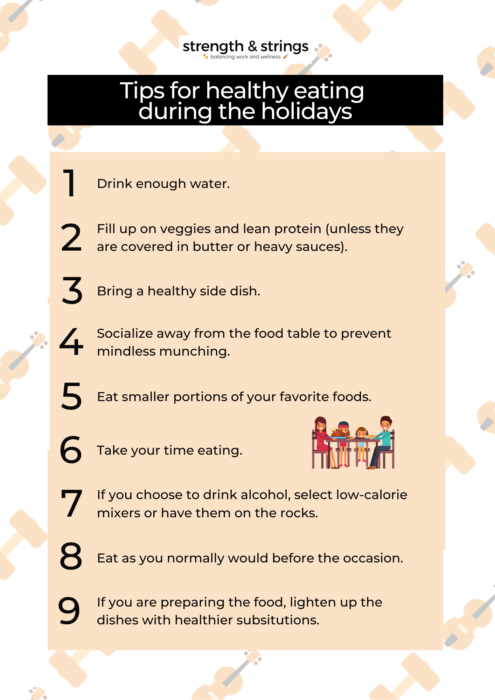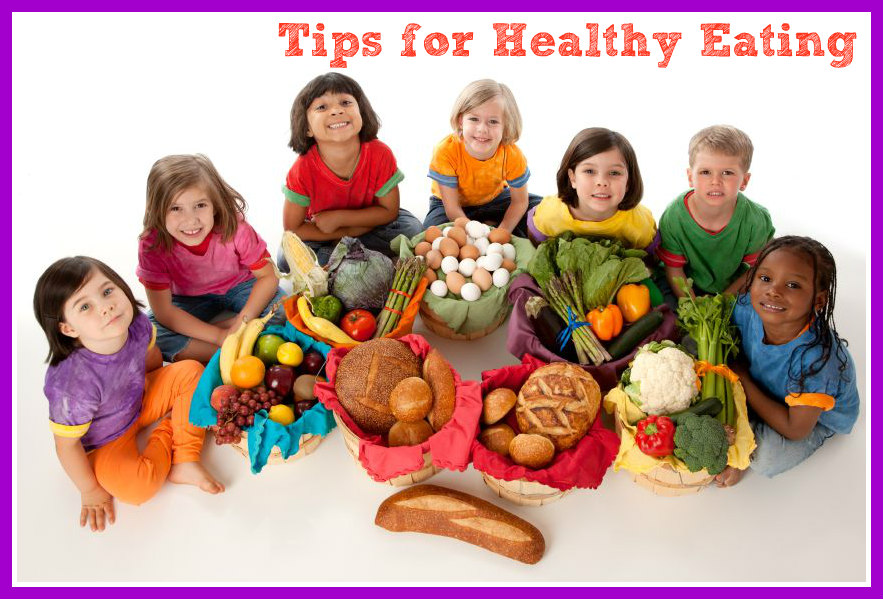
Your doctor may have given you specific recommendations regarding the types of foods you should avoid. There are still some things you can take to avoid high blood pressure. You should limit your intake of fatty and processed foods. Also, keep a record of all medications. You will be able to remember to take them. To be able quickly to reference your medication list, keep it with you at any time.
Dr. Desai encourages people with high blood-pressure to get as much exercise and as many as possible. Some of the best options include walking, running, swimming, using an elliptical machine, or playing tennis. Salt is one of your biggest enemies when it comes to high blood pressure. Salt increases blood volume, and can cause arterial pressure to rise. So, it's best to avoid eating foods containing too much salt.

Secondly, you should eat a healthy diet. A healthy diet includes plenty of fruits, vegetables, low in saturated fat, and high levels of fiber. You can take vitamins, minerals, or whey to lower your blood sugar. Finally, try to cut down on your intake of sugary beverages as well as alcohol. Avoiding these foods will lower your chance of developing high bloodpressure.
Third, reduce the amount of salt or saturated fat that you consume. Salt is a major component of processed foods, which are often high-sodium and high-in sugar. A diet high in fruits and vegetables is a better choice. This will lower your blood pressure. You can also limit the amount of alcohol you consume. High blood pressure is a reason to not drink alcohol. This is especially true for those over 60 who have been drinking heavily for years.
You'll be on your way to a healthier heart if you follow the tips above. These tips can help you keep your blood pressure healthy and make you feel happier. These tips will be invaluable to both you and your physician. You'll soon be able to live a healthier life by learning how to manage your blood pressure. Once you have found the right balance you will be able to live your life to its fullest.

Also, limit how much alcohol you drink. Drinking moderate amounts of alcohol is important to lower your risk of high bloodpressure. A standard beverage has 14 grams of alcohol. Salty foods with high amounts of sodium should be avoided. A low-sodium diet can help maintain normal blood pressure. Additionally, it is important to reduce salt in your daily diet.
FAQ
What kind of food should I avoid when trying to lose weight?
Avoid foods that contain trans fats. Trans fats raise LDL (the bad) cholesterol levels and reduce HDL (the good) cholesterol levels.
Trans fats are commonly found in fast food, deep-fried and packaged baked goods as well snack cakes and other processed foods.
These unhealthy fats also contribute to inflammation, leading ultimately to heart disease or diabetes.
Foods containing artificial sweeteners should also be avoided. Artificial sweeteners can increase your risk of developing cancer.
These chemicals can be found in soft drinks, chewing gum, and candy bars. They can also be found in other foods like meat, poultry, and eggs.
Artificial sweeteners include saccharin, cyclamate, sorbitol, aspartame, acesulfame-K, and sucralose.
The American Heart Association recommends avoiding these chemicals because they may damage DNA in cells.
Which dietary supplement can help you lose weight?
Exercise and diet are key to losing weight. Some people find that certain supplements are helpful.
A few studies have suggested that omega-3 Fatty Acids might help weight loss. Omega-3s, essential fats, are critical for brain function and cell membrane health. They can be found in seafoods like salmon, tuna or shrimp, as well as cod liver oil.
Research suggests that green tea may be beneficial in weight loss. The antioxidants in green tea, catechins and other compounds may increase metabolism and promote weight loss.
Is it true that overeating protein causes kidney stones?
Protein is essential for healthy bones and tissue. Too much protein can cause calcium to be excreted through the urine. This can lead to kidney stone formation.
Not everyone who eats more than 2g of protein per kilogram (2.2 lbs) of bodyweight will get kidney stones. High amounts of protein can be consumed by some people without causing kidney stones.
Your sodium intake can prevent kidney stone formation. Sodium regulates the water balance of the kidneys. Too much sodium results in a higher risk of developing kidney stones.
You can also try reducing your protein intake if you get kidney stones. Protein provides about half of the daily caloric needs for most adults. It is possible to lose weight by cutting down on your intake of proteins.
If you do decide to eat more protein, don't go overboard. Limit your intake to 20% of your total daily protein intake.
What is the Best Workout for Men Over 40 Years?
Older men will find that the best workouts give them more energy as well as improve their stamina.
It is important to note that most people over 40 experience a loss of testosterone in their bodies, resulting in lower sex drive.
You can still exercise, however. Research has shown that exercise regularly can increase testosterone in men.
Aerobics can be a good way to improve your sexual performance.
How do I build muscle quickly?
It is important to eat healthy food and lift weights frequently in order to quickly build muscle.
It is best to exercise in the morning, when you feel fresh and ready to go!
It is a good idea to do exercises like push-ups (pushes), bench presses (squats), and so on.
Consider trying different weight training programs and drinking plenty of water throughout each day.
How to Lose Belly Fat Fast
There are many fast ways to lose belly fat. One option is to eat less calories and drink more water.
Another way is to increase your metabolism by participating in activities such as running and swimming.
You should avoid sitting for too long if you want to quickly lose belly fat. Instead, stand up frequently throughout the day. This will allow you to burn more calories.
If you've tried all the methods and are still struggling with belly fat, there's another option.
This is done by using a device called the belt. The belt is designed to fit around your waist while you are sitting down.
It will cause you to feel uneasy and make it difficult for you to move. This will make you lose more calories and help you reduce your belly fat.
Egg is good for you?
The egg is rich in all nutrients needed by the human body. It supports strong bones, healthy heart, lungs, and stable blood sugar.
Eggs are a good source of protein and vitamins A, B12, D, E K, calcium, phosphorus iron, zinc copper, magnesium selenium and even riboflavin.
The egg yolk contains high levels of cholesterol. However, it doesn't contain saturated fat. Eggs have less saturated fat than many other foods.
They are also low in calories and sodium. They can also be prepared in many different ways. They can be fried, poached, scrambled, boiled, hard-boil and baked.
They are incredibly nutritious and easy to prepare.
Two whole eggs should be eaten each day. If you dislike eating eggs, you should add them to your diet.
Our bodies need eggs to provide the essential nutrients they require. Try adding them to your daily diet today.
Statistics
- Candidates and applicants must pass all four tests at 70% (minimum level) to graduate from Basic Deputy U.S. Marshal (BDUSM) Training. (usmarshals.gov)
- Get free shipping and 25% off today. (healthline.com)
- According to the American Academy of Dermatology (AAD), men over 50 are at a heightened risk of developing it. (healthline.com)
- Cardmembers earn 5% Back at Amazon.com with a Prime Credit Card. (amazon.com)
- By John Thompson Take a whopping 38% off a set of PowerBlock Pros. (menshealth.com)
External Links
How To
How do I lose weight while working out?
Exercise reduces calories by increasing metabolism, and oxygen consumption.
Exercise at a moderate intensity to safely lose weight.
To burn fat while exercising, follow these tips:
-
Cardio exercises include swimming, running or cycling.
-
Exercise for 30 minutes three times per week.
-
If you want to lose more weight, add strength training to your routine.
-
Avoid intense workouts. It is possible to build muscle without destroying muscle tissue.
-
Drink plenty of water during exercise. Water is essential for flushing out toxins and keeping your body hydrated.
-
After exercising, you should drink low-fat protein drinks. Protein shakes can help boost energy and repair muscles.
-
You can eat smaller meals throughout the day so that you don't feel hungry in between meals.
-
Don't skip breakfast! You can feel tired and slow if you skip breakfast.
-
Take care to your mental well-being. Stressful situations can affect your metabolism.
-
Keep a positive attitude. Studies have shown that people who are convinced they are overweight gain more weight than those who feel they look attractive.
-
Get enough sleep. Lack of sleep makes it harder to burn fat.
-
Be active. Make sure you get up and move every hour.
-
Maintain a healthy diet. Eat right to feel satisfied and full for longer.
-
Find relaxation techniques. A tense mind doesn't allow your body to release stress hormones that break down muscle tissue.
A balanced diet will provide all nutrients that are necessary for growth.
Consider eating six small meals daily instead of three big ones. This allows your body time to digest what you've eaten.
To maintain strong bones, you need to consume 500 mg of calcium each day. Calcium can also be found in milk products, yogurt, fortified Soy beverages, orange Juice, cereals and bread.
Calcium is found in leafy vegetables, beans and tofu, as well nuts, seeds and cheese.
Vitamin D is necessary for the body to absorb calcium. Vitamin D can also be found in some fortified foods such as eggs, fish, and yolk.
Vitamin E is essential for skin health. It's found in vegetable oils, wheat germ oil, peanuts, almonds, sunflower seeds, and corn.
Your body requires zinc to function normally and for wound healing. Zinc can be found in seafood, legumes and meats.
Zinc deficiencies can lead to fatigue, decreased appetite, depression, and reduced immunity.
Eating too much sugar causes insulin resistance, which increases blood glucose levels. Insulin resistance causes weight gain.
Insulin resistance develops when there are high levels of free radicals in the bloodstream. Free radicals are molecules with unpaired electrons that damage cell membranes and other parts of the body.
Food additives, pesticides and herbicides, as well as preservatives, smoking and radiation are all sources of free radicals.
Free radical damage can lead to cancer, heart disease, diabetes, arthritis, asthma, and aging.
To prevent free radical damage, eat a healthy diet rich in antioxidants. Antioxidants protect against oxidative damage.
Vitamin C (found on citrus fruits), Beta carotene, found in carrots and sweet potatoes, spinach and broccoli, cantaloupe (found in tomatoes, mangoes and peppers), and Vitamin E (found nuts, olive oil and avocados).
Selenium, manganese (and zinc) are other antioxidant nutrients.
Selenium protects cells from free radical damage. Selenium is also found in Brazil nuts.
Copper protects the brain and eyes as well as the lungs and red blood cells. Copper is found in shellfish, poultry, meat, and organ meats.
Manganese is essential for bone structure. Manganese is found in brown rice, spinach, bananas, prunes, raisins, oatmeal, and lentils.
Zinc helps with normal growth, reproduction, as well as wound healing. Zn is found in lean meats, poultry, white fish and eggs.